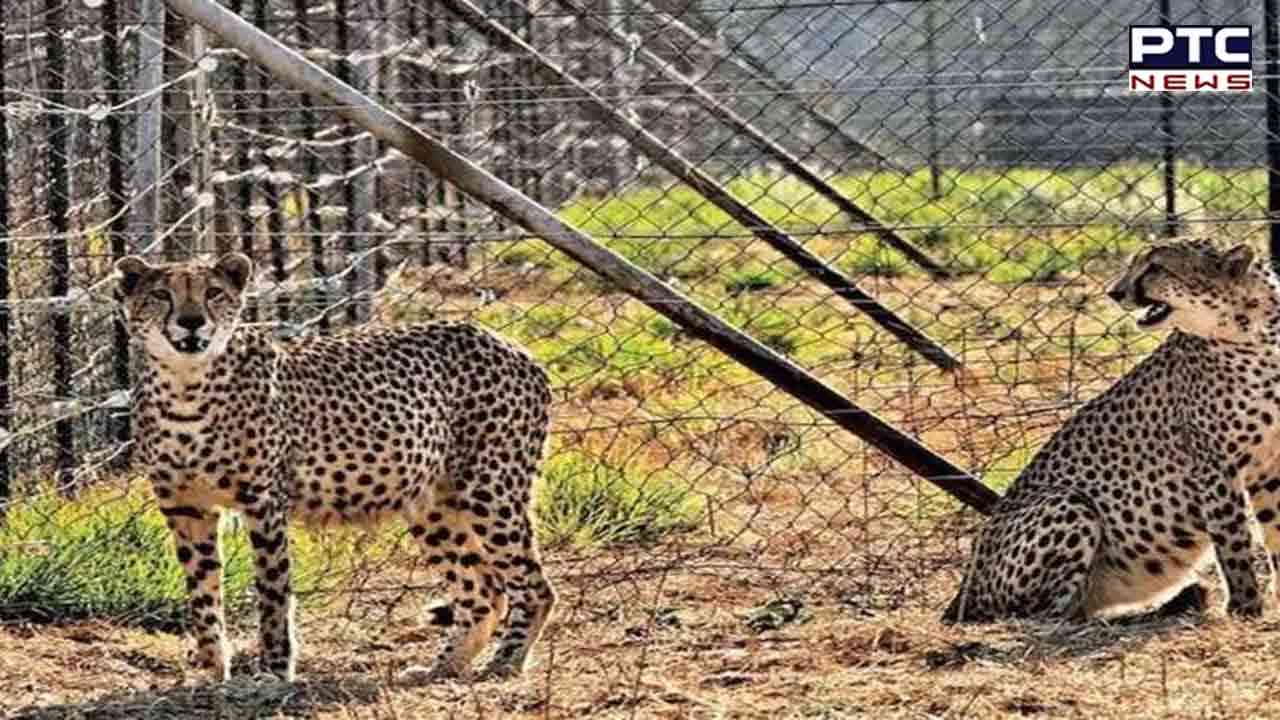

Two Cheetahs flown in from Namibia make first kill on Indian soil
Kuno, Madhya Pradesh, November 7: Two cheetahs, who were flown in from Namibia and released in Kuno National Park, made their first kill within 24 hours of being released into a large enclosure, DFO Prakash Kumar Verma has said. The details about the prey are yet to be known. Prime Minister Narendra Modi had introduced the cheetahs in India on his birthday this year on September 17.
The two cheetahs -- healthy and adjusting well -- were on Sunday released in the bigger enclosure after completing their mandatory quarantine.
The release of the two cheetahs came after the Ministry of Environment, Forest and Climate Change received a no-objection certificate from the Ministry of Animal Husbandry for quarantine clearance to be released in a big enclosure.
Also Read | India issues comprehensive advisory for students planning to study medicine in China

In 1947-48, the last three cheetahs were hunted by the Maharaja of Korea in Chhattisgarh and the last cheetah was seen at the same time. In 1952 the Government of India declared Cheetahs as extinct and since then Modi government has restored cheetahs after almost 75 years.
Also Read: Punjab Govt seeks application from NGOs regarding financial assistance: Dr Baljit Kaur
- ANI
